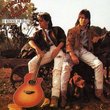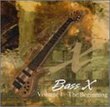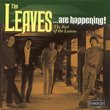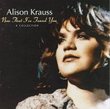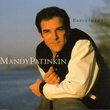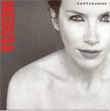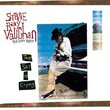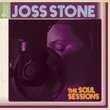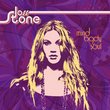| All Artists: Mandy Patinkin Title: Mamaloshen Members Wishing: 0 Total Copies: 0 Label: Nonesuch Original Release Date: 2/24/1998 Release Date: 2/24/1998 Genres: Folk, International Music, Jazz, Pop, Broadway & Vocalists Styles: Jewish & Yiddish, Easy Listening, Oldies, Vocal Pop, Traditional Vocal Pop Number of Discs: 1 SwapaCD Credits: 1 UPCs: 075597945928, 2605000030835 |
Search - Mandy Patinkin :: Mamaloshen
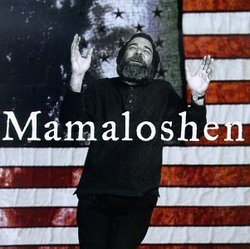 | Mandy Patinkin Mamaloshen Genres: Folk, International Music, Jazz, Pop, Broadway & Vocalists
Mandy Patinkin knew only a few words of Yiddish at the beginning of the '90s, when the late Joe Papp eked a promise from the actor-singer to learn the repertoire. So he did, and this helzapoppin' collection of traditional ... more » |
Larger Image |
CD DetailsSynopsis
Amazon.com Mandy Patinkin knew only a few words of Yiddish at the beginning of the '90s, when the late Joe Papp eked a promise from the actor-singer to learn the repertoire. So he did, and this helzapoppin' collection of traditional Yiddish tunes and Yiddish translations of English songs by Jewish composers is the overblown, symphonically orchestrated result. Patinkin plays to the third balcony on "Mamaloshen" ("mother tongue"), squeezing every iota of feeling out of songs you might have heard on Grandma's knee, and turning each guttural consonant into a virtual phlegm fest. Nostalgia can be nice, but things get weird when Patinkin makes with Yiddish versions of such showstoppers as "Supercalifragilisticexpialidocious," Paul Simon's "American Tune," "Take Me Out to the Ballgame," and--oy vey ist mir!--even "The Hokey Pokey," their inclusion justified on assimilationist principles. --Richard Gehr Similar CDs
Similarly Requested CDs
|
Member CD ReviewsReviewed on 6/21/2011... If you are looking for something different, I do recommend this CD. He has a smooth, deep voice, that can change to high and sharp very quickly. Some of the songs, such as Raisins and Almonds, are really beautiful, while others are rather silly (in a fun way).
This was my first time hearing Mandy Patinkin's music. I was curious, knowing him only as the character in the Princess Bride. I enjoyed the CD overall. CD ReviewsEvery Goy's Guide to Mamaloshen kahuna@cascade.org | Seattle | 11/18/1998 (4 out of 5 stars) "I love Yiddish words, though I did not grow up listening to the language, and never heard any Yiddish songs. My limited Yiddish came from my Unitarian father's useage, e.g., my sister was called "Yenta-Kvetch." Thus, I appreciated the booklet with each song in Yiddish and English. I've been a loyal fan of Mandy Patinkin's singing since his first recording, "Dress Casual." I love to surprise people who only know him from "Chicago Hope" or "The Princess Bride" by playing Mandy's version of "Over the Rainbow" from his 1989 CD, "Mandy Patinkin." "Mamaloshen" is at its best when Mandy's sweet powerful voice is able to unleash his full emotion. Paul Simon's "American Tune" never sounded better. At the other end, I could have done without the spiced up "White Christmas" with its overbearing cymbals. "Take Me Out to the Ball Game" and "Supercalifragilisticexpialidocious" are humorous the first time thru then could be skipped, except in the middle of a silly baseball song is a fantastic, gut wrentching version of "God Bless America." The most lasting songs are the ones I never heard before. In the middle of the day, my mind will replay the words I don't comprehend to "Rabbi Elimeylekh." Every time I listen to the emotional songs in "Mamaloshen," I have a greater appreciation of the melting pot which is America. You don't have to be Jewish to appreciated the Yiddish songs. You only have to be alive to appreciate the artistry of Mandy Patinkin." What a surprise!!! Steven Kruger | Atlanta, GA USA | 10/22/1998 (4 out of 5 stars) "Though a "Mandy Patinkin" fan, I made TERRIBLE jokes about this album before even hearing it. "Yiddish songs?", I thought. Well, upon hearing this recording at a friend's (who is even hipper than I), I was enchanted. What beautiful, enchanting music! It calms me down even better than a Xanex. Everyone needs one!"
|

 Track Listings (16) - Disc #1
Track Listings (16) - Disc #1
